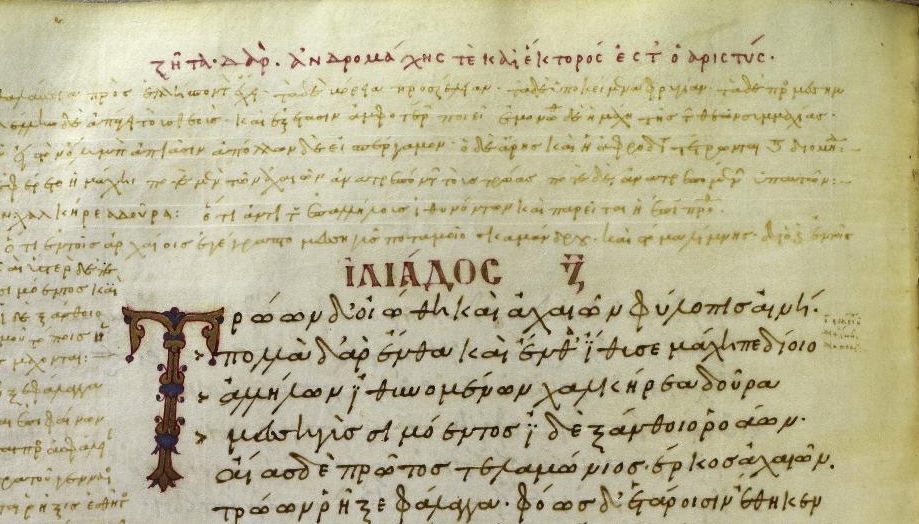June 19-July 3, 2014
 Over the next few weeks, teams of undergraduate researchers and faculty mentors will convene at the Center for Hellenic Studies in Washington, DC for the 2014 Homer Multitext summer seminar. The seminar will provide an introduction to fundamental ideas about the oral composition and transmission of the epics, and basic training in editing digital texts. The seminar will focus on manuscripts of the Iliad with scholia that have been photographed as part of the Homer Multitext project.
Over the next few weeks, teams of undergraduate researchers and faculty mentors will convene at the Center for Hellenic Studies in Washington, DC for the 2014 Homer Multitext summer seminar. The seminar will provide an introduction to fundamental ideas about the oral composition and transmission of the epics, and basic training in editing digital texts. The seminar will focus on manuscripts of the Iliad with scholia that have been photographed as part of the Homer Multitext project.
During the two weeks of the seminar, student-faculty teams will work on manuscript material not fully published previously, and will be expected to continue to work as a team after returning to their home institution. Successfully completed work will be reviewed and published as part of the Homer Multitext project’s digital publication program.
The Homer Multitext project, the first of its kind in Homeric studies, presents the textual transmission of the Iliad and Odyssey in a historical framework. It offers free access to a library of texts and images, a machine-interface to that library and its indices, and tools to allow readers to discover and engage with the Homeric tradition.
HMT Editors Casey Dué and Mary Ebbott are working to advance our understanding of oral poetics and multiformity in the Homeric tradition. In a recent post, Dué notes: “One of the central research questions that drives the Homer Multitext is this: ‘How do you make a critical edition of an oral tradition, like that of the Homeric Iliad and Odyssey, that spanned a thousand years or more? What is the best way to represent the textual history of songs that were created in and for performance, but survive only in textual forms from later eras?'” Dué and Ebbott are now also “live blogging” about their research on oral poetics and Iliad Scroll 2. Don’t miss their latest post!

Image: Detail from the Venetus A, folio 33, verso. Iliad 2.484-487, (trans. Casey Dué)
[484] ἔσπετε νῦν μοι Μοῦσαι Ὀλύμπια δώματ᾽ ἔχουσαι·
[485] ὑμεῖς γὰρ θεαί ἐστε πάρεστέ τε ἴστε τε πάντα·
[486] ἡμεῖς δὲ κλέος οἶον ἀκούομεν οὐδέ τι ἴδμεν·
[487] οἵ τινες ἡγεμόνες Δαναῶν καὶ κοίρανοι ἦσαν·
[484] Tell me now, Muses who have homes on Olympus,
[485] for you are goddesses and are present for all and know all things,
[486] whereas we only hear the fame [kleos] and do not know anything,
[487] who were the leaders of the Danaans and their commanders?
